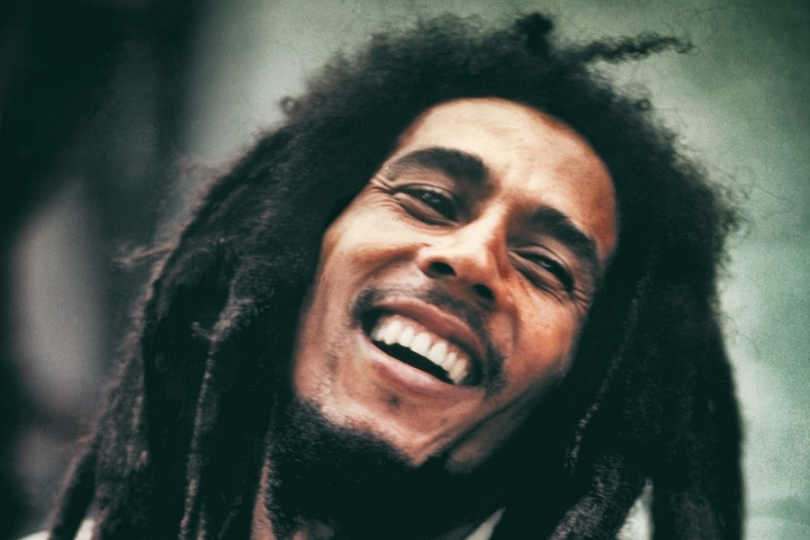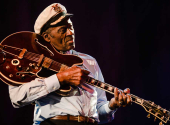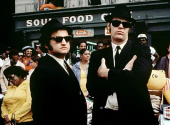
Covered #9: Bob Marley – Redemption Song
This series is not just about featuring hits and evergreens, that wouldn't be enough. It aims to present songs that have succeeded not only in their original version but also in many other renditions. A lot of covers are described as "better than the original" and in many cases, only a few people know the original. Sometimes there is even a dispute as to which version came first. The songs we are going to talk about and, more importantly, whose cover versions we are going to present, won't be based on the place or time of their creation, and definitely not on their original musical genre. Folk, jazz, blues, rock, pop or musical, we can find interesting songs anywhere.
"Redemption Song", one of Bob Marley's biggest hits, is among the least typical songs we've discussed in this "cover" series. Firstly, it is quite unusual for its author, partially because it is completely free of reggae elements. Also, most of its covers are more interesting in terms of who adopted the song rather than what they did with it.
Yes, the vast majority of performers "just" play it and sing it, without any special arrangements. It's not because there's nothing you can do with it. Rather, the song is so strong that it speaks for itself. Also, a lot of the reinterpretations are more or less "accidental", they are concert pieces sung on specific occasions.
The original "Redemption Song" is on Bob Marley's album Uprising, released in October 1980, less than a year before the singer's death. Generally, this album – and especially the mind-liberation song in question – is considered a kind of Marley epitaph. Let's listen to the original version accompanied by a video, which was created additionally in 2020 for the singer's seventy-fifth birthday.
Probably the first cover version is on the album Somewhere in Afrika (1982) by Manfred Mann's Earth Band – and it is one of the few exceptions to what was mentioned a moment ago: the band approached the song completely differently, taking only a part of it and adding African motifs, including vocals in African dialects, and thus creating quite an interesting and very 80s world music concept.
One of the most famous covers of "Redemption Song" is undoubtedly Joe Strummer and Johnny Cash's version, which appeared on Cash's posthumous album Unearthed from the American Recordings series.
However, Strummer specialists know that the ex-frontman of The Clash recorded the song solo and it was released on his – also posthumous – album Streetcore.
In the mid-1990s, Stevie Wonder also contributed to the song. He recorded it for the soundtrack of the film Get on the Bus and the version subsequently made it onto his Greatest Hits.
Considering that Bob Marley is an icon of socially engaged music in the best sense of the word, it is no wonder that his songs, including "Redemption Song", have been sung on various occasions by his "followers", for example, by Bob Geldof, Bono and Youssou N'Dour.
It is interesting to note, however, that "Redemption Song" has been sung by two sorts of performers: rock singers, often from the original grunge scene, and female singers from the highest pop league. As an example of the former group, we can mention Chris Cornell.
The second "party" is represented by Rihanna, whose performance supported a charity for the victims of the earthquake in Haiti.
As an extra special treat, there is a combination of the two imaginary camps, with Eddie Vedder inviting fellow artist Beyoncé to perform "Redemption Song" live.
One of the most musically inventive versions of the song is definitely the one by Angelique Kidjo, whose beautiful Afro-style version accompanied by a choir was released on the Spirit Rising album in 2012.
The list could go on because "Redemption Song" is indeed a song with hundreds of versions – we can mention those performed by John Legend, Wyclef Jean or his former partner Lauryn Hill, who recorded it as a duet with one of Bob Marley's sons Ziggy.
Finally, let's focus on two truly wondrous covers. One of them was created for the YouTube charity series Playing for Change – it is one of the song's best interpretations ever and it already has a whopping 65 million views. It is interesting not only because Marley's other son Stephen sings on it and the creators cleverly incorporated the songwriter's authentic footage and voice into the recording, but also because of its very unusual instrumentation – as is usual in this project.
There is also a version that may seem bizarre to some (which is why we've traditionally saved it for the very end of the article), but it undoubtedly has great power. Indeed, it was picked by Soan, an 11-year-old boy from the island of Réunion, to perform in the 2019 French children's talent competition The Voice Kids France, accompanied by his father on a bow-based ethnic instrument. The audience and the jury remained speechless. How about you?
If you have found an error or typo in the article, please let us know by e-mail info@insounder.org.





